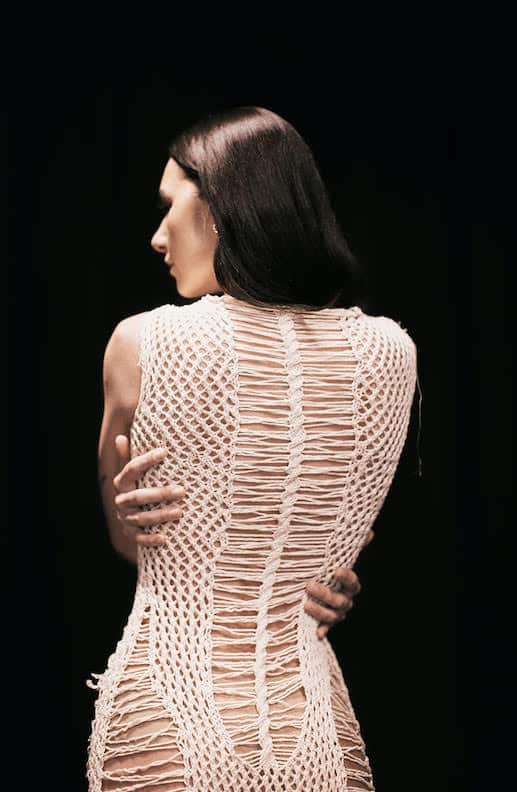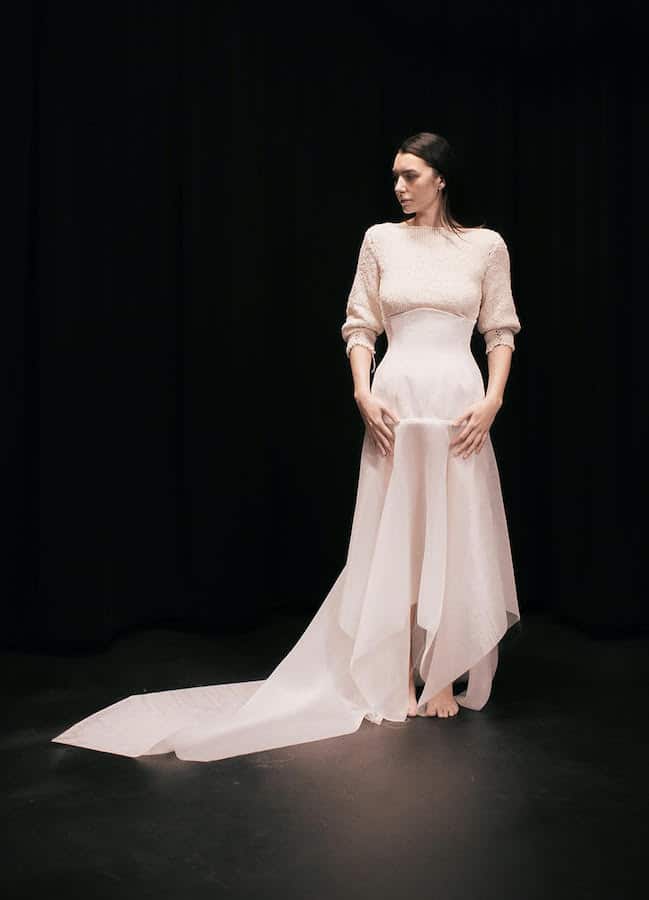By Katie Holland
Alexander Diesner, a senior studying fashion design and sustainability at ASU FIDM, is pushing the boundaries of conventional fashion with his zero-waste collection that will be showcased at the school’s Uncertainty Fashion Show on April 12.
Diesner worked as an independent designer for eight years prior to enrolling at ASU FIDM, where he has been able to combine his long-term love of fashion with forward-thinking, sustainable techniques.
“Sustainability has always been at the forefront of what I do,” Diesner said. “But I am also very much like a big, glittery, fantastic, dramatic ball gown type person, so I’ve been learning how to shift things around.”

While Diesner has incorporated the design skills he has learned from previous collections into his current line, the pieces he has created for his current collection are entirely unique.
“All of the garments that are in this collection, especially the knitted garments, they’re garments I’m never going to make again,” Diesner said. “They are truly one-of-one art pieces that are engineered to be the exact way that they are. There’s no cutting or sewing involved in anything.”
Jessica Kosak, who teaches sustainable systems and design, contemporary fashion and knitwear design, witnessed Diesner become inspired by the zero-waste potential of knitwear and oversaw the creation of his collection.
“I think knitwear was a new challenge that excited him and he just took it and just ran with it,” Diesner said. “He has created the most amazingly engineered pieces and has taken it past the level of just application and really instilled his sense of design into it as well.”
Diesner’s designs represent a growing trend in the fashion industry that aims to minimize waste and create more sustainable pieces. With the UN declaring March 30 as International Zero-Waste Day, the efforts of designers like Diesner and instructors like Kosak are more relevant than ever.

“We can’t lose everything that fashion is. It’s become such an important part of who we are as a culture, and it’s something that needs to be preserved,” Kosak said. “And in order for it to be preserved, it has to be less environmentally impactful.”
Fashion is often referred to as one of the most polluting industries, leading to numerous calls for widespread industry reform. While this issue is much larger than everyday consumers and single designers, Kosak mentions there are still ways to combat fashion pollution that individuals can integrate into their daily lives.
“I have the same advice for everyone: design, buy and wear clothes that you love. When you have designers who are designing clothes that they love, that translates to the customer,” Kosak said. “That is the more sustainable future, where everyone gets what they need out of fashion without feeding the machine mentality that we’ve created where quantity outweighs quality.”






